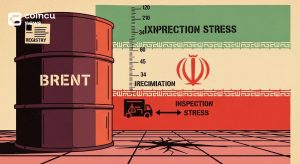Key Points:
- The FSA’s 2025 tax reform requirements mention crypto asset transactions for the first time.
- The proposal highlights the need to reconsider the Japanese crypto tax, though specific measures have not yet been defined.
- There is ongoing advocacy from industry groups and investors to reduce crypto transactions’ current maximum tax rate of 55%.
Japan’s FSA (Financial Services Agency) has just published its tax reform requests for the fiscal year 2025 and put emphasis on the need to address the tax treatment of cryptocurrency transactions first.

Read more: Japanese Crypto Support Bill Now Aims To Boost Digital Asset Industry
Japanese Financial Regulator Unveils Proposal for Crypto Tax Reform for 2025
Coinpost reported the plans were made in the “Asset Income Doubling Plan and Realization of Establishment of a Nation through Asset Utilization” chapter of their manifesto, in efforts to maximize asset utilization for economic growth.
In the document filed by the FSA with the “Financial Income Tax System Integration” project, in a section titled “Current Situation and Problems”, there is a call for the reevaluation of the classification of virtual currencies as financial assets. A re-evaluation for whether they must be regarded as assets subject to investment presents a major shift in Japanese crypto tax.
Industry Calls for Unified Japanese Crypto Tax Rate
While no specifics have been floated as yet, the bringing of transactions within cryptocurrency into the ambit of the reform plan is a new feature. The proposals will go before the Party Tax System Research Committee and the National Assembly before any change in the laws.
The slew of potential reforms has piqued the interest of industry groups and investors who have long advocated for reform of the existing tax structure. As it currently stands, gains from cryptocurrency transactions can be taxed as high as 55% as miscellaneous income.
While stakeholders in Japan are demanding a more simplified crypto tax structure, they propose having one tax rate of 20%, independent taxation similar to other financial investment categories. Japanese crypto tax will attract more activity to the cryptocurrency market and boost economic activities somehow.
| DISCLAIMER: The information on this website is provided as general market commentary and does not constitute investment advice. We encourage you to do your own research before investing. |




















